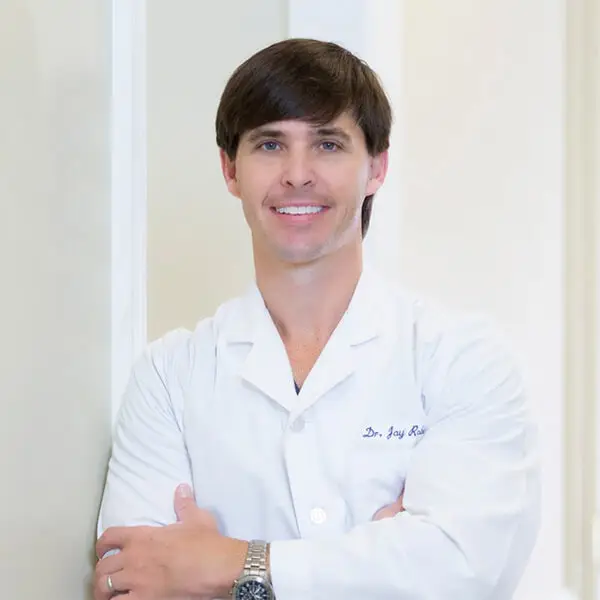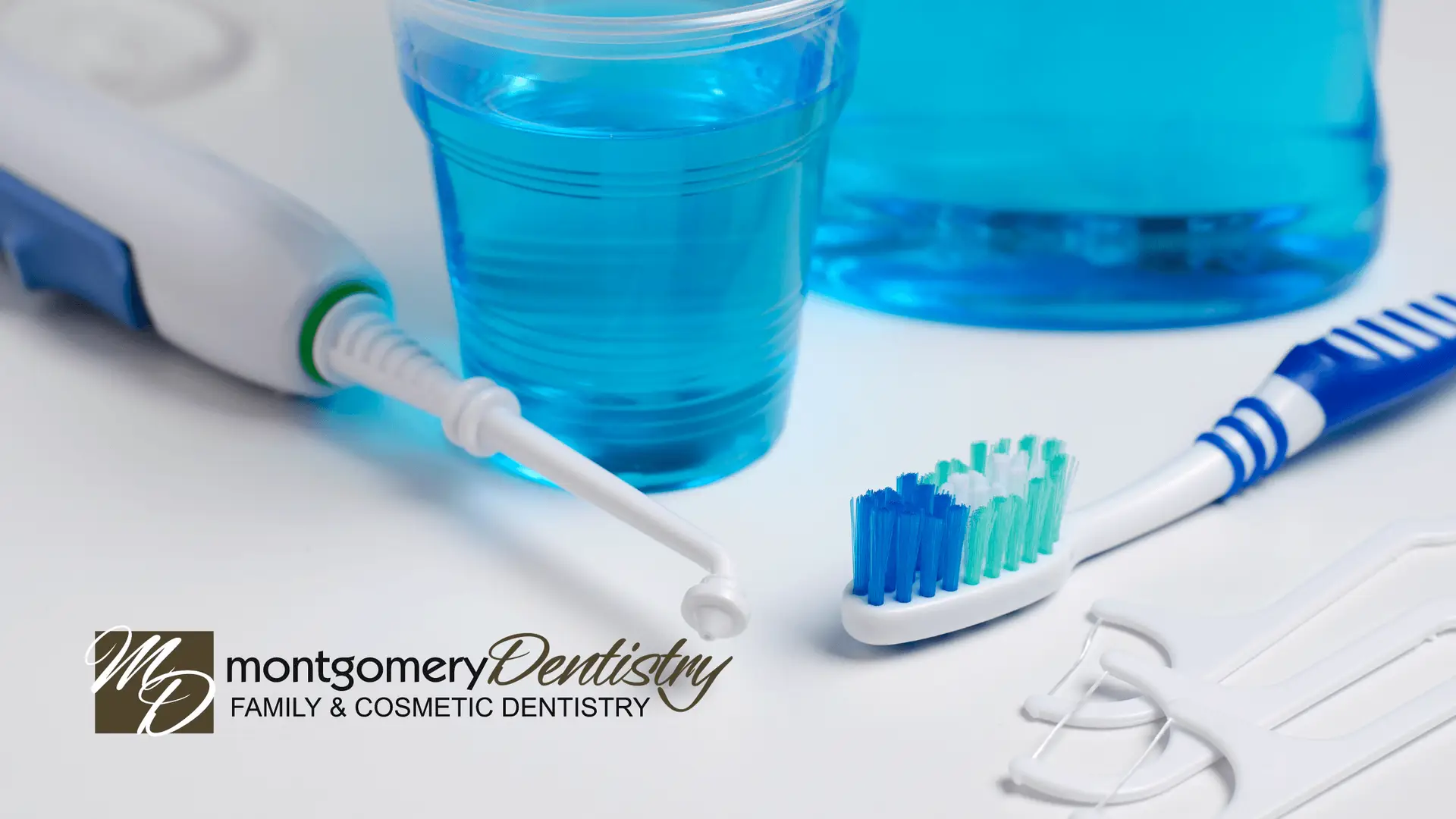Mouthwash offers a solution to bad breath but it can also be a great addition to a healthy oral care routine. It usually contains antimicrobial and other ingredients designed to inhibit odor-causing bacteria, as well as reduce the bacteria that can cause gingivitis and gum disease. Gum disease left untreated can lead to complications such as gum recession and tooth loss, using mouthwash can help aid your prevention efforts.
There are two different types of mouthwashes: cosmetic and therapeutic. Cosmetic mouthwash is an over-the-counter product that helps to temporarily control bad breath. It can also leave behind a pleasant taste but has no chemical or biological application – which means it will not fight plaque, gingivitis, or cavities. It can, however, help to remove oral debris that might linger after brushing teeth and leave your mouth feeling cleaner than before. Therapeutic mouthwash often has multiple benefits. They contain active ingredients that depending on the formulation can help to prevent various oral diseases and conditions like tooth decay, gum disease, mouth pain, dry mouth, and bad breath. You are able to get therapeutic mouthwashes over the counter but some do require a prescription.
Mouthwash can be used anytime but is most effective after thoroughly brushing and flossing your teeth. Make sure to follow the directions on the label or as advised by your dentist. Avoid drinking and eating for 30 minutes after using mouthwash to get the maximum benefit.
Mouthwash should never replace daily brushing and flossing but the use of mouthwash can get in between teeth to reach areas that your toothbrush can’t. Here’s a list of things mouthwash can help with.
Preventing/Reducing Gum Disease
Using mouthwash daily can improve your health in several ways, including preventing gum disease. Bacteria can linger on your teeth and release acids that can irritate the gums. This can lead to gingivitis which is the first stage of gum disease. Rinsing with mouthwash can kill the bacteria that otherwise wreak your gums.
Reducing Bad Breath
Mouthwash does not necessarily kill bad breath for good but it can reduce it temporarily. Mouthwash kills odor-causing bacteria that prevail even after thorough brushing and flossing.
Assisting in Warding Off Tooth Decay
A fluoride rinse is a great way to prevent cavities. Not only does it strengthen your enamel, but it also remineralizes your teeth – effectively halting the decaying process. Mouthwash helps to prevent plaque buildup, which reduces less harmful bacteria that releases acids onto your dental enamel.
If You’re Pregnant, Mouthwash is Particularly Beneficial
Mouthwash is highly recommended for pregnant women as an extra measure to combat “pregnancy gingivitis.” This oral health issue can increase the likelihood of pregnancy complications and premature labor. Mouthwash is an important step in ensuring a happy and healthy pregnancy.
Reducing Plaque & the Spread of Tartar (hardened plaque)
Since mouthwash removes bacteria that can cause damage to your gums it also helps reduce the amount of plaque that forms. That is when mouthwash is only used alongside a regular brushing and flossing routine.
Mouthwash is an important part of the dental health routine. It can help in the prevention of gum disease and bad breath! While we believe mouthwash is important, we do recommend other ways to boost your oral care routine. We recommend eating a well-balanced tooth-healthy diet, limiting high-sugar foods and drinks, avoiding frequent snacking, and changing your toothbrush every three to four months.
While mouthwash is not a replacement for brushing and flossing it is an important addition to your oral health care routine. If you have any questions regarding how to use and which one to use schedule an appointment with us!
About the Author
-

Dr. Jay L. Robertson
Dr. Jay Robertson joined our practice in July 2008. He is from Montgomery and is a graduate of Saint James School, Birmingham-Southern College, and the University of Alabama, Birmingham School of Dentistry. He is a member of the American Dental Association, the Alabama Dental Association and the Academy of General Dentistry.
Dr. Robertson and his wife Jennifer have four children, John Campbell, Julian, Lowe, and Ansley.
Dr. Robertson serves on the board of the Montgomery Quarterback Club and is a member of the First United Methodist Church of Montgomery. When not at work, Dr. Robertson enjoys all things sports, including Auburn, golf, and his children’s various sports.
